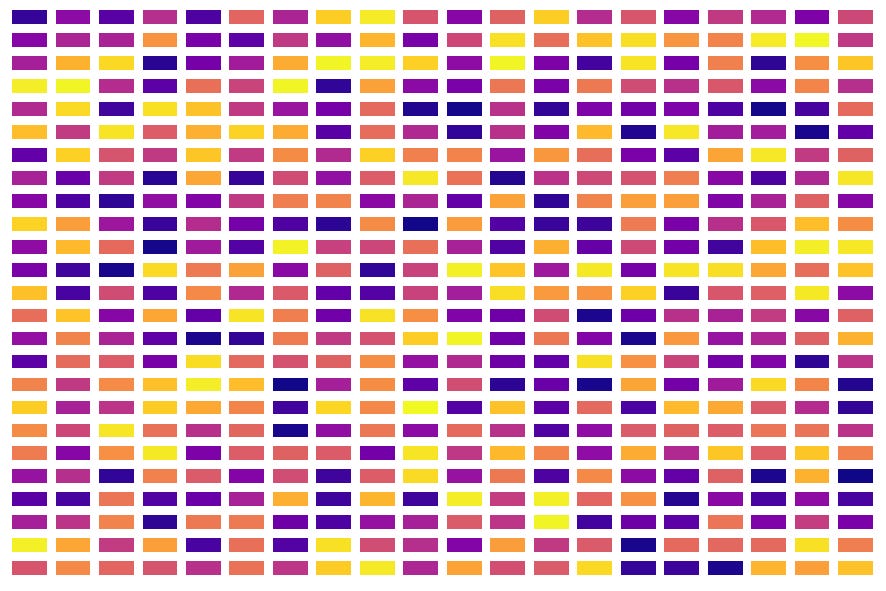There is a new democratic method that is shown to:
Make people better informed.
Reduce political polarization and create democratic consensus.
Resolve the most controversial of political topics, including climate change, abortion, gay marriage, illegal immigration, and election reform.
This new democracy is called “deliberative democracy”, based on a simple premise. If you give normal people time, money, resources, and expertise, they are capable of making informed decisions, and they are capable of deliberating with one another to construct better decisions.
The Promise of Deliberative Democracy
The common narrative of today is that democracy has failed. People are stupid and make stupid decisions, both in their daily lives and at the ballot box. These dumb people voted for Trump, or they voted for Biden, and therefore they cannot be trusted. Therefore, it’s time to get rid of democracy!
Fortunately according to the top academic journal Science Magazine (2019),
“Deliberative experimentation has generated empirical research that refutes many of the more pessimistic claims about the citizenry’s ability to make sound judgments…. Ordinary people are capable of high-quality deliberation, especially when deliberative processes are well-arranged: when they include the provision of balanced information, expert testimony, and oversight by a facilitator.
Deliberation can overcome polarization, echo chambers, and extremism. Democratic deliberation promotes “considered judgment” and “counteracts populism”:
The communicative echo chambers that intensify cultural cognition, identity reaffirmation, and polarization do not operate in deliberative conditions, even in groups of like-minded partisans. In deliberative conditions, the group becomes less extreme; absent deliberative conditions, the members become more extreme.
So How Does It Work?
The process of deliberative democracy isn’t magical at all, but so common-sense that you may wonder why we don’t do this already. Imagine we have a political question that needs to be answered. To practice deliberative democracy, we follow these steps:
Construct an assembly of normal citizens using random sampling. Yes, we randomly choose people to participate, in bodies from 50 to 1000 citizens in size.
Conduct a “learning phase” where experts present the citizens with information about the topic of discussion.
After the learning phase, the assembly consults with the community by bringing in testimony from interested members of the public.
The assembly then deliberates and discusses amongst each other in the “deliberation phase”.
Then, the assembly formulates proposals that can address the political question.
Finally, the assembly votes on proposals to render a final verdict.
This process resembles typical legislative procedures practiced in governments throughout the world, with a key difference - deliberative democratic assemblies are composed of normal members of the public through random selection, in a process known as “sortition”.
The second key difference between other assemblies is that unlike “Town-hall-style” democracy, the randomly chosen participants are paid a wage for their time and efforts. Wages are key in reducing the economic barriers to participating in democracy. Deliberation also happens on the time scale of many days to months rather than your evening off.
With random selection and wages paid for work rendered, the process of deliberation becomes democratized to achieve a sort of equality of probability of selection.
What have Citizens Decided?
After interest in sortition and deliberation surged in the 2000’s, hundreds of deliberative experiments such as Citizens' Assemblies have been conducted. For example:
In Ireland, Citizen Assemblies were instrumental in the legalization of both gay marriage and abortion in a traditionally Catholic country. These assemblies were used to resolve politically volatile subjects so that fearful politicians would not have to.
Recent 2019-2020 Citizen Assemblies in Ireland and France reached consensus on sweeping, broad reforms to fight climate change. In Ireland taxes on carbon and meat were broadly approved. In France the assembly decided to criminalize "ecocide", raise carbon taxes, and introduce regulations in transportation and agriculture. Liberal or conservative, left or right, near unanimous decisions were made on many of these proposals.
The British Columbia Citizens Assembly was tasked with designing a new electoral system to replace the old first-past-the-post (FPTP) system. This assembly nearly unanimously decided that Canada ought to switch to a Single-Transferable-Vote style election system. They were also nearly unanimous in that they believed FPTP voting needed to be changed. This assembly demonstrates the ability of normal people to learn and make decisions on complex topics.
America in One Room deliberative polling experiments have demonstrated the ability of regular Americans to deliberate amongst one another and come to compromises. After the three day deliberative event, support for Trump among participants even dropped from 44.6% in the control group to 31.3% for participants, a 13 point difference. In issues such as the Trans-Pacific-Partnership, support surged from 66% to 88% for Democrats and 23% to 62% for Republicans. Republican support for reducing visas for unskilled workers dropped from 66% to 34%. For Democrats, support for a $15 minimum wage dropped 23 points (after realizing that different localities would adapt to this differently) [3].
Time and time again, normal citizens are able to come to compromise and consensus in ways that elected politicians cannot. In nearly all deliberative events, participants are highly satisfied with the experience and the level of respect achieved after deliberation.
Random Selection vs Election
We elect and pay our Congressmen to do the deliberation for us. If deliberation is so great, why is Congress so dysfunctional?
The Virtues of Lottery
Unlike elections, random selection of citizens brings forth powerful statistical techniques in order to construct a representative assembly that looks like everyday citizens. When you use random lottery to choose 500 people, the body generated will predictably resemble the rest of the population. Similarly you can sample soup using only a spoonful, rather than drinking the entire batch.
With this smaller sample we can now scale deliberative democratic methods to a manageable size of people. Conducting deliberation among 1 million participants is an impossible task. Random statistical sampling reduces the number of participants, and therefore enables face-to-face deliberation, the hiring of experts and educational resources, payment of participants for their time, and the capability to participate for long periods of time on the scale of days, months, or even years.
The Perils of Elections
Elected politicians are chosen through an extreme filtering process, where they may:
Raise substantial campaign funds from wealthy donors in order to generate sufficient advertising and media exposure.
Appease rationally ignorant voters who did not have the time to engage in informed deliberation or meaningful monitoring of a politician’s conduct.
Appease affluent special interests who might otherwise oppose their candidacy.
Perform irresponsible political stunts for the sake of short term political goals (such as Nixon sabotaging Vietnam peace talks in order to secure an election win).
Be a part of a special class of people who can afford to take a year off from work to run for office.
This filtering process typically biases the preference of politicians in favor of elite special interests at the expense of the public good.
Most of us are also incapable of meaningfully monitoring politicians without the time nor resources to do so. Even if we are highly technically informed about a policy, we may be ignorant on our elected representative’s sincerity in advocating for that policy (Without being physically in the office looking over a politician’s shoulder, how can we be sure?). We might use a proxy such as a social media personality, or a television news network, or a political endorsement, to perform the monitoring for us. Unfortunately the art of choosing a good proxy is just as difficult as monitoring a politician, leading normal people to make ignorant choices. With the inability to monitor, normal people are then unable to meaningfully hold politicians accountable for their actions.
However, the capabilities of normal people change when are paid to deliberate in an assembly. In such an environment, normal people are given sufficient resources to meaningfully evaluate proposals and even evaluate politicians. Deliberation therefore could result in better policy and better politicians.
Envisioning the Next Steps for Deliberative Democracy
The experiments in deliberative democracy, though they have proven the capability of normal citizens to come to good judgments, unfortunately have yet to convince many politicians. The verdicts of Citizens’ Assemblies and deliberative polls are routinely ignored by lawmakers who instead may feel forced to ally themselves to special interests, power brokers, and financial backers.
If normal citizens are capable of making good political decisions without politicians, then why do we need elected politicians anyways? Many political theorists have come to the conclusion that at the very least, randomly selected deliberative bodies could be added to political systems to greatly enhance decision making.
Professors John Gastil, Olin Wright [4] as well as Arash Abizadeh [5] have argued for the creation of a Citizen’s Senate. This Senate would be composed of randomly selected people in order to construct a deliberative body. This Citizens’ Senate would complement an elected House of Representatives in a bicameral arrangement.
Philosopher Edward Guerrero also envisions a government where lottocratic assemblies are used as single-issue decision makers [2].
Former politician Terril Bouricious advocates for a radical multi-body sortition system where several lottocratic bodies act as checks and balances on each other. One citizens’ body would decide on what issues to tackle. Another body would write propoals. And yet another body would evaluate proposals [6].
Numerous other schemes for deliberative democracy have been proposed. For example a Citizen’s Initiative Review constructs a deliberative assembly to evaluate or screen referendum proposals. A deliberative assembly can also be used to select leaders rather than using a traditional election. Randomly chosen citizens can also be used to supplement an existing elected body.
The Future of Democracy is Deliberative Democracy
The empirical evidence indicating the competence of normal people in deliberative settings is quite substantive. Normal people tend to be more competent than politicians at resolving controversial issues. Normal people tend to be more competent than politicians at coming to consensus and compromise. Normal people tend to be more competent at enacting meaningful reforms that are desired by the people. And interest in creating permanent deliberative bodies is slowly but surely rising. Recent Citizens’ Assemblies in Scotland for example concluded that Citizens’ Assemblies ought to be given permanent political power to supplement elected legislatures. Citizens’ Assemblies have also been integrated into the Constitutional amendment process in Mongolia.
So in contrast to the doomsayers predicting the retreat of democracy, we now have a powerful new weapon to reinvent a democracy fit for the 21st century.
Further Learning
This new democracy has many names - Sortition, democratic lottery, lottocracy, demarchy. US advocates can be found at www.democracywithoutelections.org. In the UK advocacy can be found at www.sortitionfoundation.org.
References
J Dryzek et al. The Crisis of Democracy and the Science of Deliberation. Science, 2019.
A Guerrero. Against Elections: The Lottocratic Alternative. Philosophy and Public Affairs, 2014.
America in One Room. Stanford Center for Deliberative Democracy. https://cdd.stanford.edu/2019/america-in-one-room/
Gastil, Wright. Legislature by lot: envisioning Sortition within a bicameral system. Politics and Society, 2018.
A Abizadeh. Representation, Bicameralism, Political Equality, and Sortition: Reconstituting the Second Chamber as a Randomly Selected Assembly, Perspective On Politics, 2020.
TG Bouricious - Democracy through multi-body sortition: Athenian lessons for the modern day. Journal of Public Deliberation, 2013.





Really appreciating this substack, John. Looking forward to more terrific articles.
Finally, something I can agree to and support. :)